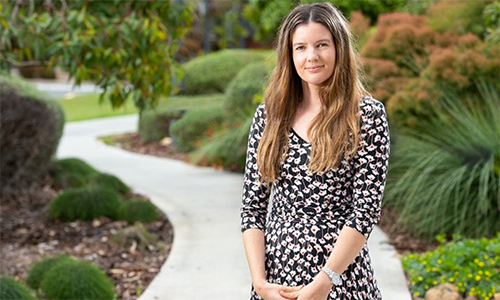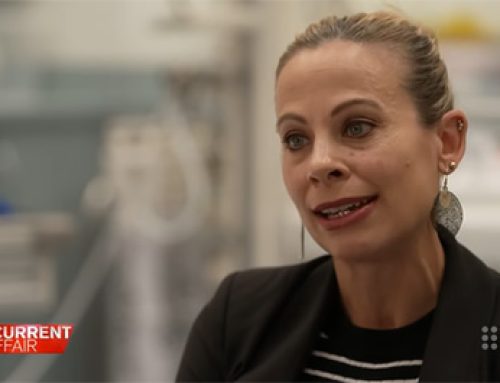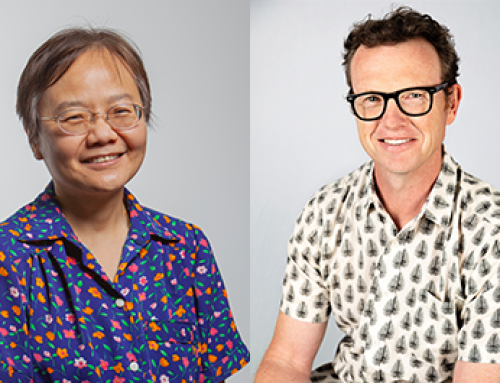Dr Hannah Carter awarded National Health and Medical Research Council Investigator grant

Dr Hannah Carter has received a $637,040 NHMRC Investigator grant for the project: ‘Healthcare delivery at the end of life: economic methods to improve value for patients, carers and society’.
The project is one of two National Health and Medical Research Council (NHMRC) Investigator grants QUT is celebrating, totalling $1.3 million.
Dr Carter (pictured right), from the Australian Centre for Health Services Innovation and Centre for Healthcare Transformation in the QUT School of Public Health and Social Work said the project aimed to produce rigorous economic evidence that supports the delivery of high-value, person-centred models of care for people and their caregivers at the end of life.
She said up to 70 per cent of Australians wished to die at home but just 15 per cent would do so.
“More than half of Australians will die in acute hospitals and another 30 per cent in residential aged care, which is the least preferred place of death.
“This fundamental misalignment between consumer preference and healthcare delivery at the end of life is common to many high-income countries.
“Palliative care often happens at a late stage and is of variable quality, delivered by fragmented healthcare systems that are often not well equipped to accommodate the patient or caregiver voice.”
Dr Carter said there is evidence that more than 30 percent of patients who die in hospital receive inappropriate or non-beneficial treatment.
“Interventions at the end of life are often excessive and may increase suffering – up to one third of people who die in hospital receive treatment that has no benefit,” Dr Carter said.
“This is distressing for patients and families, as well as medical staff, and wastes scarce health resources.
“My research will estimate the patterns and drivers of healthcare costs over the last 12 months of life and model the impact of interventions to improve care. This will help to underpin effective planning for current and future population needs.”
Dr Carter said cost-effectiveness analysis was a widely used tool for informing resource allocation and policy, but knowledge gaps hindered the case for investment in end-of-life care.
“We are increasingly recognising that conventional cost-effectiveness methods cannot capture non-health-related measures of wellbeing important to people at the end of their lives.
“With this in mind, I will conduct choice experiments to better understand the preferences held by patients, caregivers and the general community for end-of-life services.
“Choice and preference are fundamental to high quality, person-centred care. This program of work will provide recommendations to support the efficient and equitable distribution of healthcare resources at the end of life.
“It is my hope that this research will ultimately result in more patients and families being able to experience a ‘good death’.”
Media contacts
Australian Centre for Health Services Innovation: Sian Conway Lamb, 07 3138 6087, sian.conwaylamb@qut.edu.au
QUT: Niki Widdowson, 07 3138 2999 or n.widdowson@qut.edu.au
QUT: After hours: 0407 585 901 or media@qut.edu.au







